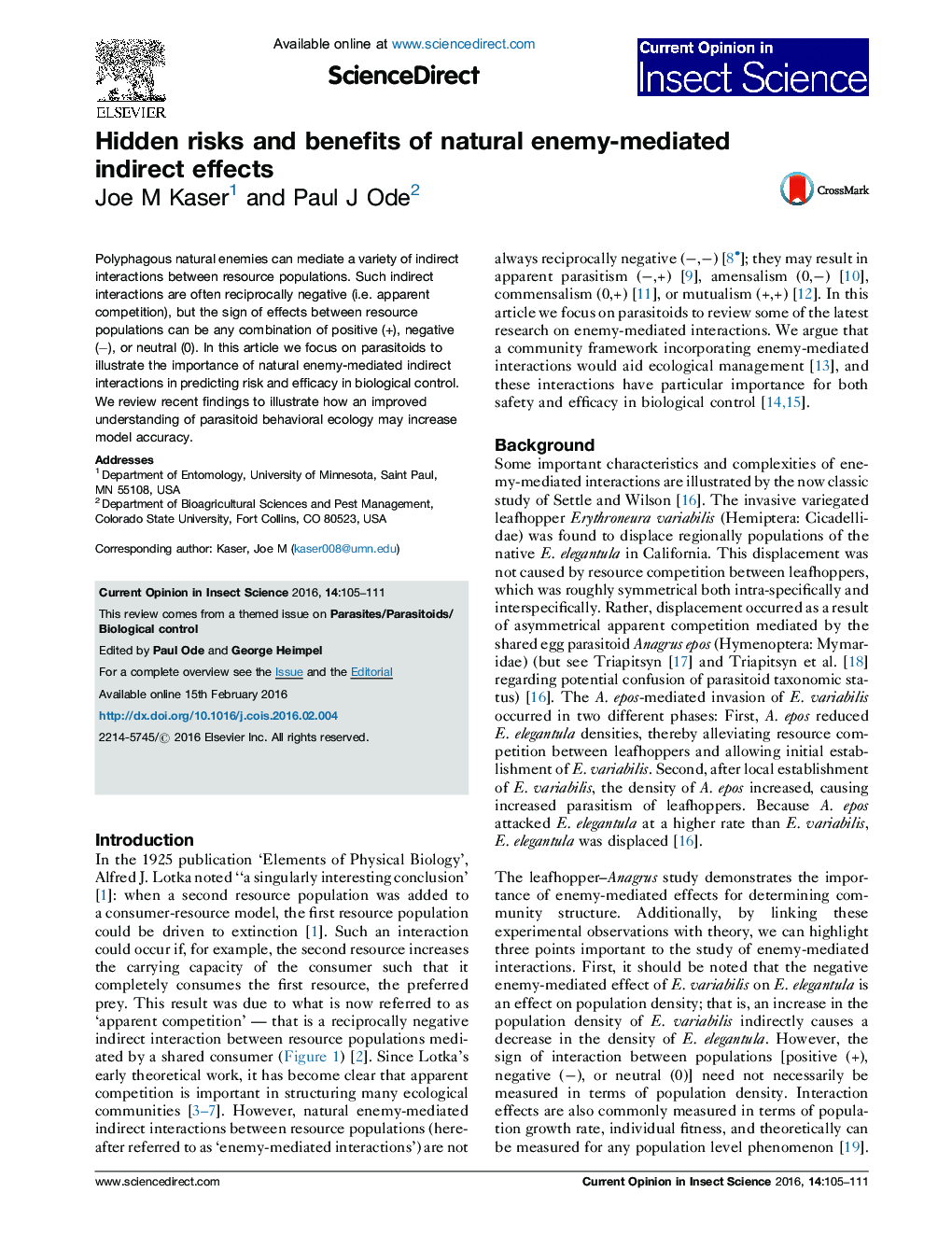| Article ID | Journal | Published Year | Pages | File Type |
|---|---|---|---|---|
| 4508187 | Current Opinion in Insect Science | 2016 | 7 Pages |
•Natural enemy-mediated indirect interactions, such as apparent competition, have important implications for risk and efficacy in classical biological control.•Ineffective specialist biological control agents may result in ecological harm via resource enrichment.•Parasitoid egg limitation may result in apparent parasitism between host populations.•Apparent competition has been successfully exploited to control invasive species, but importation of polyphagous natural enemies has resulted in serious harm to native species.•Simultaneous consideration of risk and efficacy in a community context will improve classical biological control programs.
Polyphagous natural enemies can mediate a variety of indirect interactions between resource populations. Such indirect interactions are often reciprocally negative (i.e. apparent competition), but the sign of effects between resource populations can be any combination of positive (+), negative (−), or neutral (0). In this article we focus on parasitoids to illustrate the importance of natural enemy-mediated indirect interactions in predicting risk and efficacy in biological control. We review recent findings to illustrate how an improved understanding of parasitoid behavioral ecology may increase model accuracy.
Graphical abstractFigure optionsDownload full-size imageDownload as PowerPoint slide
